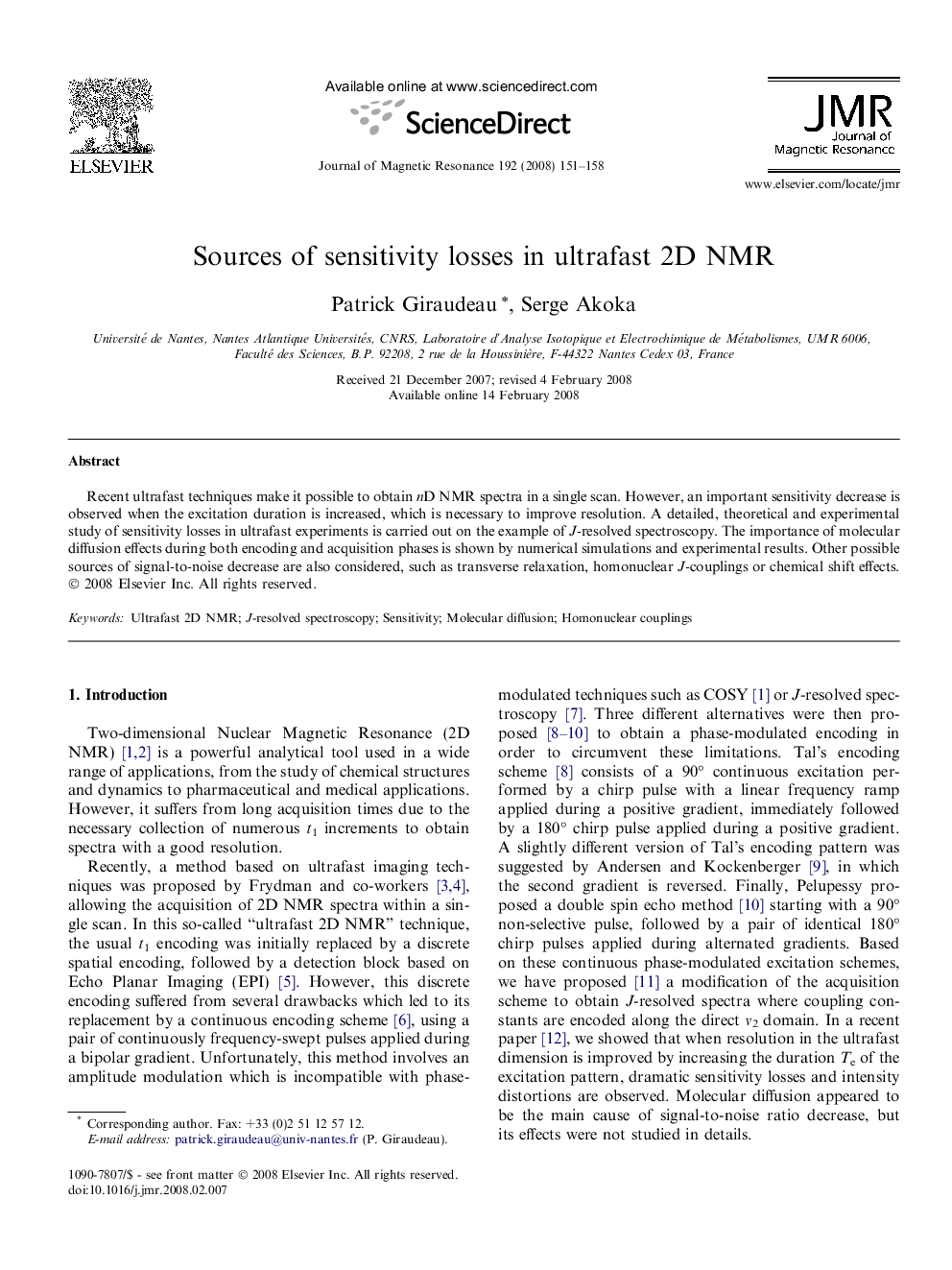| Article ID | Journal | Published Year | Pages | File Type |
|---|---|---|---|---|
| 5407187 | Journal of Magnetic Resonance | 2008 | 8 Pages |
Abstract
Recent ultrafast techniques make it possible to obtain nD NMR spectra in a single scan. However, an important sensitivity decrease is observed when the excitation duration is increased, which is necessary to improve resolution. A detailed, theoretical and experimental study of sensitivity losses in ultrafast experiments is carried out on the example of J-resolved spectroscopy. The importance of molecular diffusion effects during both encoding and acquisition phases is shown by numerical simulations and experimental results. Other possible sources of signal-to-noise decrease are also considered, such as transverse relaxation, homonuclear J-couplings or chemical shift effects.
Related Topics
Physical Sciences and Engineering
Chemistry
Physical and Theoretical Chemistry
Authors
Patrick Giraudeau, Serge Akoka,
